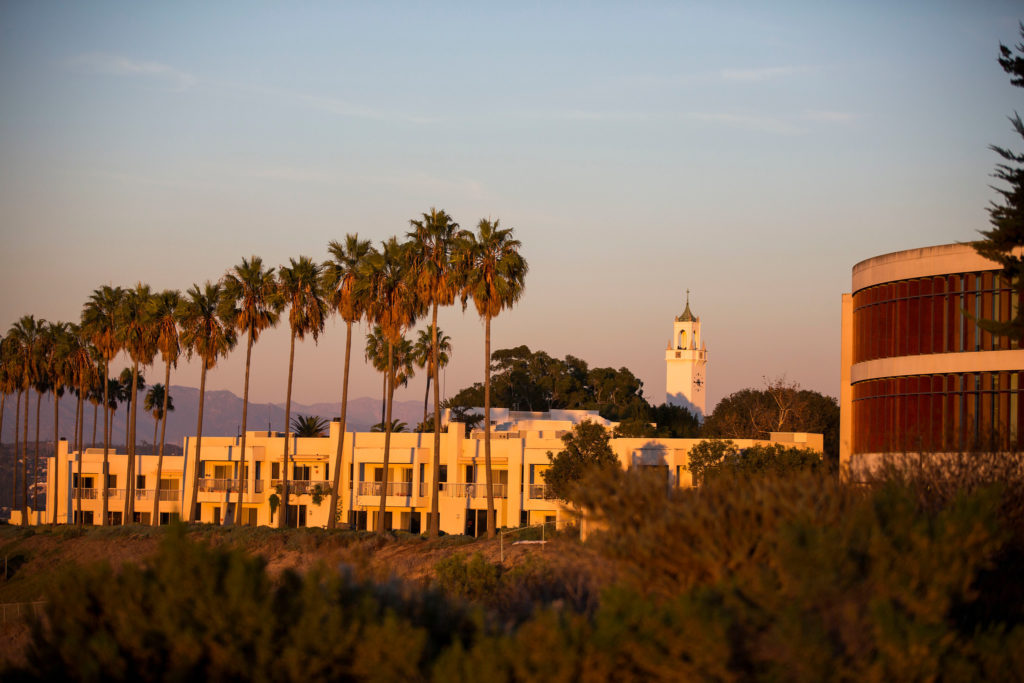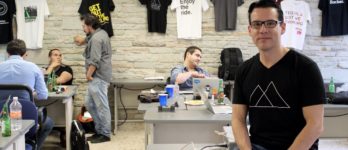
Loyola Marymount University (LMU) was one of the very first universities in the United States to offer an entrepreneurship program in 1972. Our goal is simple: Helping our students become super-successful entrepreneurs.
Name of Program: Loyola Marymount University – Fred Kiesner Center for Entrepreneurship
Location: Los Angeles, CA
Website: entrepreneurship.lmu.edu
Executive Director: David Y Choi, Ph.D.
This interview is part of our Entrepreneurial Program Spotlight Series featuring College and University Entrepreneurial Programs from around the world. We hope these spotlights will assist the aspiring student entrepreneur should they consider attending an entrepreneurial program at the collegiate level.
Following is an interview with LMU’s David Y Choi, Ph.D., the Director of the school’s Center for Entrepreneurship. LMU is generally recognized as having one of the top entrepreneurial programs in the United States.
In four sentences or less, tellus about your school’s entrepreneurial program and its objectives?

Loyola Marymount University (LMU) was one of the very first universities in the United States to offer an entrepreneurship program in 1972.
Our program is also one of the best. We have been consistently ranked as one of the top programs in the country – No. 6 and No. 14 in 2016 according to U.S. News & World Report and Princeton Review, respectively. All that said, our goal is simple: Helping our students become super-successful entrepreneurs.
8 Things all Businesses should know about millennials.
Why is your program unique? Please describe the benefits of participation in your program to the student / potential entrepreneur.
First, our committed faculty. Our knowledgeable and experienced faculty members are committed to the success of our students. Second, a great community of colleagues and alumni. Our students join our supportive entrepreneurial family now and forever. Third, we are the “The University of Silicon Beach”: We are located in the heart of Silicon Beach, currently the hottest and fastest growing area of entrepreneurship in the U.S. Lastly, we believe in making a difference. We aim to do well and do good (“social justice”).
What is the most difficult part about working with students and potential entrepreneurs interested in launching startups during or following a college program?
We set a very high standard and push our students to excel because we want them to be ready for the tough business world. At the same time, we need to make sure we do not discourage them from pursuing their dreams. As teachers, we have to find the delicate balance.
The truth is that very few entrepreneurs have all the skills and capabilities they need when they first start their businesses as most acquire them over time. It is most rewarding for us to see a student overcome criticism, failure, and self-doubt and find confidence in his or her ability to succeed.
What do you enjoy the most; what do you find most appealing about working with students interested in entrepreneurialism?
Our Entrepreneurship students have the best attitudes. They live their lives with incredible optimism. Everything is possible in their eyes. Our students are also willing to work hard, while also being friendly and personable. That’s why so many of our graduates are successful in their professions regardless of whether they start a company or join a large organization. Who would not want to have a self-starter with great energy as a leader in their organization?
Making these 7 mistakes? You may have a failing company.
Tell us about your success stories; Which are the most interesting startup companies to have been initiated / began during attendance in your program? Why, in your opinion, have they been successful?
Our graduates have sold $1B+ worth of businesses and are currently doing well over $1B in sales a year. It is hard to pick just a few but let’s try.
Chris McKleroy (class of 2010) co-founded Boombotix around the time of his graduation. He was able to combine his passion for action sports with product development. His company successfully raised several million dollars in capital and created a brand in the portable speaker category.
Brandin Cohen, Hayden Fulstone and Cameron Killeen (class of 2010) co-founded Liquid I.V. when they came back two years after graduation and rejoined our family in the incubator that we have on campus. They worked with our students and professors to conceive, develop, and launch a healthy and effective hydration product. The company has raised almost a million dollars in capital and has been able to land on store shelves at Whole Foods and other stores across the country.
Jason Wilk (class of 2007) started his technology company soon after graduation, but had to pivot several times and persevered through the lean years. Eventually, the company evolved into AllScreen, a leading video syndication and audience engagement company. The company was recently acquired for $85 million.
In each case, these students were successful because they believed in themselves and worked really hard and smart. It also helped that they enjoyed their work even while going through the ups and downs of their businesses.
How much funding have startups from your program raised in recent years?
To our knowledge, therecent graduates of our undergraduate and MBA programs have raised about $60 million in the last five years. Obviously, this does not include some of our former graduates who have raised hundreds of millions of dollars each for their businesses.
What are the three most important factors students interested in startups and entrepreneurialism should consider when contemplating attending a program such as yours?
1. The Program:
Prospective students should look at the faculty – are they academics with no business experience or former entrepreneurs rehashing old stories of their past success? At LMU, we have professors with real business experience along with entrepreneurs and VCs dedicated to teaching. Students should also examine what kinds of courses and other educational/professional opportunities the program offers.
2. The Location:
 While there are great entrepreneurship programs around the country, there are few that can offer the innovative environment that large metropolitan areas like Los Angeles and San Francisco can. Los Angeles may indeed be the city of the future, the intersection of creativity, technology, and culture. The growth of Silicon Beach offers incredible job, internship, and startup opportunities.
While there are great entrepreneurship programs around the country, there are few that can offer the innovative environment that large metropolitan areas like Los Angeles and San Francisco can. Los Angeles may indeed be the city of the future, the intersection of creativity, technology, and culture. The growth of Silicon Beach offers incredible job, internship, and startup opportunities.
3. The Fit/Community:
I think it is important to visit the school you are considering, whether you are a graduate or undergraduate student. Many of our students sense a strong “fit” when they visit our campus and meet fellow students. Students at LMU work together and also become good friends and business partners after graduation.
If a student is interested in attending your program, what should they do?
I would urge them to visit and get to know us. Sample before you buy. Make sure you will get a good return on investment. Feel free to contact me (david.choi@lmu.edu) or our Assistant Director Darlene Fukuji (darlene.fukuji@lmu.edu).
What else would you like to share?
I feel like a football coach recruiting talented players. If you have a passion for entrepreneurship and are willing to work hard, please consider our program. Also don’t forget to take a look at our video. It will give you a sense of the community we have.
Interested in other Entrepreneurial Program Spotlights? Check out Babson College: Entrepreneurial Program Spotlight
Would you like us to include your school in the Entrepreneurial Program Spotlight? If so, let us know via a comment below.









